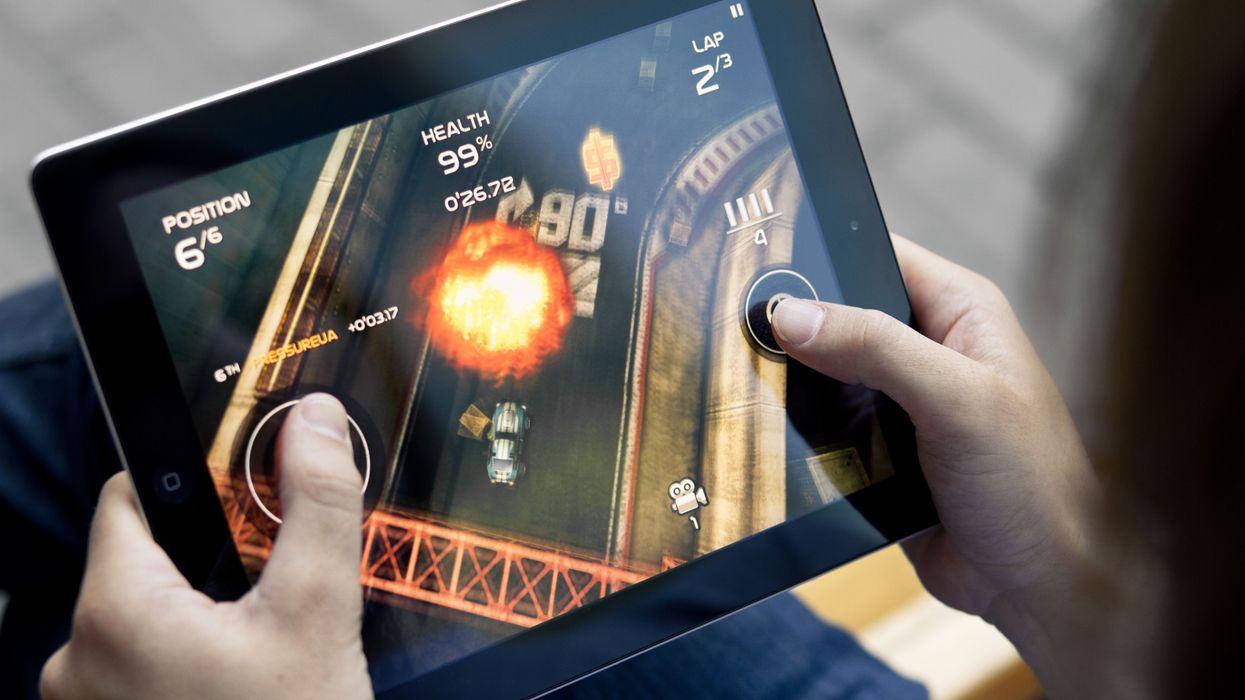Gaming has evolved into one of the most lucrative sectors in entertainment. While some companies are synonymous with gaming, others have made significant yet unexpected contributions to the industry. From smartphone manufacturers to PC hardware veterans, here are some tech giants whose roles in gaming might surprise you.
1. Apple – Arcade ambitions beyond the iPhone
Though primarily known for its consumer electronics, Apple has a notable presence in gaming through its Apple Arcade subscription service. Offering over 200 ad-free games across iPhone, iPad, Mac, and Apple TV, Apple Arcade provides a curated gaming experience without in-app purchases. While Apple doesn't produce traditional gaming consoles, its devices serve as platforms for a vast array of mobile games.
2. Lenovo – Gaming laptops and handhelds
Traditionally recognised for its business laptops, Lenovo has ventured into gaming with its Legion series. The Lenovo Legion Go, released in October 2023, is a handheld gaming device powered by AMD Ryzen Z1 series processors and runs Windows 11. It features an 8.8-inch QHD touchscreen and aims to deliver a portable PC gaming experience.
3. Asus – From motherboards to battle stations
Asus, once primarily a component manufacturer, has expanded into gaming with its Republic of Gamers (ROG) brand. The ROG Ally, launched in 2023, is a handheld gaming device running Windows 11 and powered by AMD Ryzen Z1 series processors. It offers gamers the ability to play AAA titles on the go, bridging the gap between PC and portable gaming.
4. Samsung – Smart TVs with built-in gaming
Samsung has integrated gaming into its smart TVs through the Samsung Gaming Hub. Available on 2022 and newer models, this feature allows users to stream games from services like Xbox Cloud Gaming and NVIDIA GeForce Now without the need for a console. This innovation positions Samsung TVs as central hubs for cloud gaming.
5. Logitech – Going mobile with the G cloud
Known for its peripherals, Logitech entered the handheld gaming market with the Logitech G Cloud in October 2022. This device is optimised for cloud gaming services such as Xbox Cloud Gaming and NVIDIA GeForce Now, offering a portable solution for gamers who prefer streaming over local installations.
6. Google – A brief but bold experiment
Google's foray into gaming came with the launch of Stadia, a cloud gaming service introduced in 2019. Despite initial enthusiasm, Stadia struggled to gain a foothold and was officially shut down on January 18, 2023. Nevertheless, it played a role in highlighting the potential and challenges of cloud-based gaming platforms.
7. Sony – More than just the PlayStation
While Sony's PlayStation consoles are well-established in the gaming world, the company expanded its offerings with the PlayStation Portal Remote Player. Released in late 2023, this handheld device allows users to stream PS5 games over Wi-Fi, emphasising Sony's commitment to remote and portable gaming experiences.
8. Microsoft – Beyond Xbox
Microsoft's influence in gaming extends beyond its Xbox consoles. With services like Xbox Game Pass and Xbox Cloud Gaming, the company offers a subscription model granting access to a vast library of games across console, PC, and mobile platforms. Additionally, Microsoft's acquisitions of studios like Bethesda and Activision Blizzard have solidified its position in the gaming industry.
9. Valve – The PC giant that went portable
Valve, renowned for its Steam platform, ventured into hardware with the release of the Steam Deck in 2022. This handheld PC allows gamers to play their Steam library on the go, combining the flexibility of PC gaming with the convenience of a portable device. The Steam Deck has influenced other companies to explore similar handheld gaming solutions.
10. Nintendo – The hybrid pioneer
Nintendo continues to innovate with its hybrid console approach. The upcoming Nintendo Switch 2, set to release on June 5, 2025, promises enhanced features such as 4K support via its dock, improved Joy-Con controllers, and new social functionalities like GameChat. This evolution underscores Nintendo's commitment to blending home and portable gaming experiences.
These tech giants, some of whom were unexpected entrants into the gaming arena, have significantly influenced how and where we play games today. Their innovations continue to shape the future of gaming across various platforms and devices.





